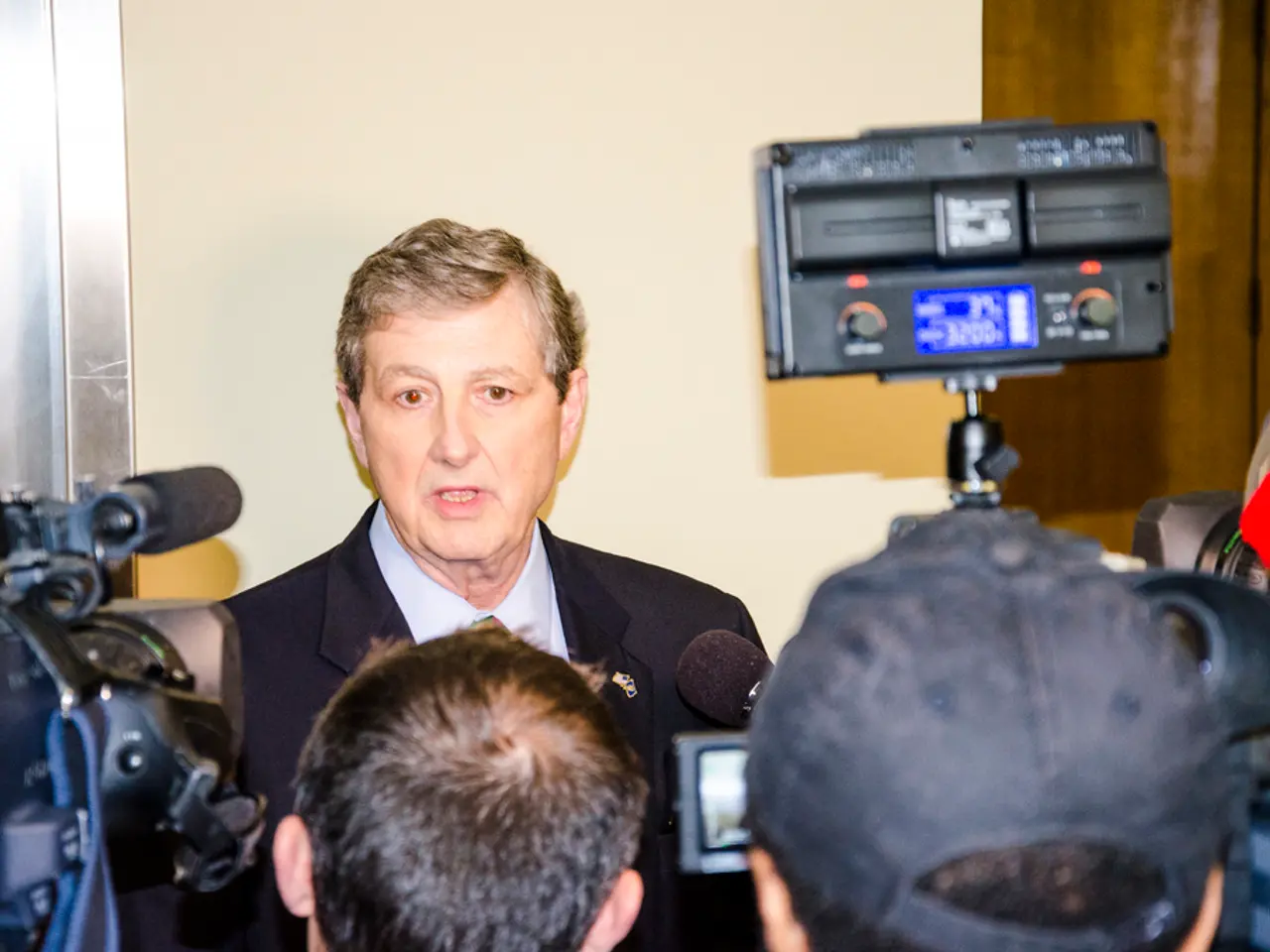Recording Audio or Video with a Home Security Camera: Learning the Regulations
In the digital age, the use of camera apps and security cameras has become increasingly common. However, it's essential to understand the legal implications and privacy concerns that come with these devices.
Firstly, camera apps may allow recording audio, and for legal safety, users should disable this feature. Recording someone with criminal or malicious intent is prohibited by federal law and many state laws.
The rules for audio recording vary across the United States. In one-party consent states, one side of the conversation needs to give consent to be recorded, making it legal to record telephone calls and two-way audio conversations you have through a camera. Conversely, in two-party (all-parties) consent states, such as California, Connecticut, Florida, Hawaii, Illinois, Maryland, Massachusetts, Montana, New Hampshire, Pennsylvania, Washington, and Wisconsin, all parties involved must consent to the recording. Justia has a guide breaking down the rules by individual state for audio recording consent laws.
When installing a security camera in your home, it's important to review your state laws, follow the reasonable expectation of privacy rule, and if you're a renter, let the property owner know about cameras. Outdoor security cameras should generally face public spaces and avoid areas where people have a reasonable expectation of privacy. A security camera can record people in public spaces, but it's important to respect the reasonable expectation of privacy, especially in private areas like bedrooms, bathrooms, or changing rooms. If guests are staying over, they should be informed about the presence of security cameras.
When renting a property, it's important to notify the owner about installing a security camera and, if possible, obtain written permission. Leases may have specific information about who is responsible for security systems. Tenants generally have the right to install their own security cameras to watch over their personal space.
In order to record audio, it is crucial to review state laws regarding one-party or two-party consent and specific language about audio recording, wiretapping, etc. California law, for example, has specific language about "intent to invade privacy" and intent to view "the body or undergarments" that can help clarify what's not allowed.
Airbnb banned all indoor security cameras (including video doorbells) for hosts in March 2024, highlighting the importance of privacy concerns in shared living spaces. Respecting the privacy of others is crucial, especially when neighbors are pointing security cameras at you. No one can film you without your permission on private property.
In conclusion, while security cameras and camera apps can provide a sense of safety, it's essential to understand the legal and privacy implications of their use. Always seek consent, respect privacy, and review state laws to ensure compliance.








